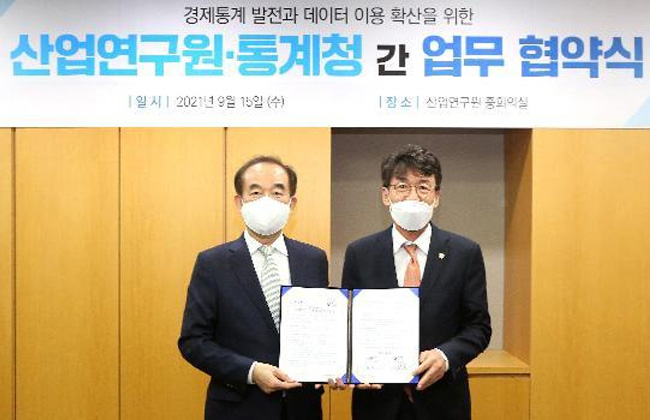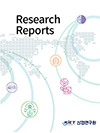Research Reports
The Republic of Korea became the first country after WWII to have transformed itself from a recipient to a donor country when it joined the OECD Development Assistance Committee (DAC) in 2010. Korean ODA reached 1.3 billion U.S. dollars in 2011, 0.12% of the nation’s GNI. Although the contribution level is still lower than international standards, it has expanded rapidly and is expected to keep growing. Intense debates arose in Korea regarding the possibility of establishing a Korean ODA model in response to the rising ODA contribution. Accordingly, this research was undertaken in order to establish a comprehensive ODA strategy by focusing on priority areas where Korea has comparative advantages.
Formulation of ODA Content and Strategies Based on Korea's Comparative Advantages
This research consists of aggregated and articulated ODA content that lie within Korea's development experience and relative competitiveness. The research was conducted under the supervision of the Korean ODA Model Task Force of the Prime Minister's Office. It was directed and managed by Korea Institute for Industrial Economics and Trade (KIET), with co-assistance from Korea Development Institute (KDI) and Korea Institute for International Economic Policy (KIEP). A number of experts from 18 organizations, including government-sponsored research institutes under the National Research Council for Economics, Humanities and Social Sciences (NRC) and other organizations such as Seoul National University and the National Research Foundation of Korea (NRF) participated in this research project. The research covered 11 sectors categorized under the four areas of economic development, social development, governance, and future issues. Based on a mid-range package of programs extracted by expert groups in each sector, the Prime Minister’s Office and the three managerial research institutes (KIET, KDI, and KIEP) formulated a program pool of 159 programs for the Korean ODA model. Among these programs, 40 basic programs were selected, which will be given priorities under the limitations of delivery capacities for all the programs in the pool. Then, KIET, KDI, and KIEP worked together to conduct research on the implementation strategy of the Korean ODA model. The final results of the research are divided into four volumes. Volume one comprises a general introduction and a summary of research findings by the three managerial research institutes. The three other volumes consist of research findings from 18 institutes. Based on these findings, the Committee for International Development Cooperation (CIDC), which is the supreme policy-making apparatus of the Korean government chaired by the Prime Minister, officially adopted the Korean ODA Model in its 13th meeting on September 14, 2012. This research marks its significance by establishing the first comprehensive Korean ODA model, which had previously been lacking substantial content despite continued debates. However, this research does not represent the final form of the Korean ODA model; the model should be continuously enhanced through vigorous modification, supplementation and expansion reflecting the development of Korean ODA itself and the changing environment of international society. Finally, the ODA-implementing agencies, including KOICA and EDCF, should bear in mind that each project implementation should be tailored to the particular circumstances of the recipient country and their development needs. Also, it should be noted that results-based management and consistent monitoring of a project is important for improving the effectiveness of ODA. * This research has been co-directed and managed by Dr. Dong-Joo Joo of KIET (djjoo@kiet.re.kr), Dr. Moon-Jung Tcha of KDI (mtcha@kdi.re.kr), and Dr. Yul Kwon of KIEP (ykwon@kiep.go.kr).

The works on this page are licensed for fair use under the provisions of the Korea Open Government License. See kogl.or.kr for more information.
Please enter the security text below
to prevent email collection
Please check the information of the person in charge.
연구과제 제안이 접수되었습니다.
신청이 접수되었습니다.


View Summary
코로나19 발생 이후 대부분의 고용 관심사가 항공 및 여행서비스, 음식·숙박 서비스 등 주로 서비스 업종에 집중된 상황에서 본 연구는 최근 그 중요성이 강조되고 있는 제조업의 고용변화를 살펴보았다. 분석에 따르면, 코로나19 이후 제조업 고용은 비교적 큰 충격 없이 빠르게 회복하는 모습을 보이고 있다. 제조업 고용은 서비스업에 비해 큰 충격 없이 유지되고 있고, 코로나19 직후 2020년 상반기에 약간 하락하였지만 하반기부터 회복 추세를 보이고 있으며, OECD 주요국의 제조업과 비교하여도 일본과 함께 고용 충격이 비교적 작게 나타나고 있다. 그러나 전반적으로 양호한 고용 성적에도 불구하고 제조업 내 특성 별로는 차이가 나타나는 것으로 보인다. 종사상 지위 별로 보면, 임시·일용직, 고용원이 있는 자영업자에서 고용 충격이 상대적으로 크게 나타났고, 상용직과 고용원이 없는 자영업자는 큰 충격이 없는 것으로 나타났다. 제조업 규모별로는 300인 이상의 경우 코로나 발생 초기 약간의 충격 이후 고용이 빠르게 반등하면서 코로나 이전보다 고용이 더 증가한 반면, 이보다 작은 규모의 제조업체들의 경우 고용 회복이 더디게 나타나고 있다. 고용의 중장기, 단기 추세선을 비교한 결과 제조업 업종에 따른 차이를 보였다. 코로나 발생 이전 3년간의 추세선을 2020년 1월부터 연장한 선과, 2020년 1월부터의 실제 자료를 이용한 단기 추세선을 비교한 결과, 의약품은 코로나19 발생 이전부터 시작하여 코로나19 발생 이후에도 견조한 증가세를 유지하고 있으며, 전자부품·컴퓨터, 기타운송장비, 가구는 코로나19 이후 오히려 고용 추세가 개선되었다. 그러나 다수 업종은 코로나 발생 이후 고용이 하락하였는데, 특히, 비금속광물, 1차금속, 금속가공 분야나 인쇄·기록매체 업종에서 하락이 상대적으로 크게 나타났다.
The following information is provided.
inform@kiet.re.krPlease complete the CAPTCHA below.
[전지적키에트시점] (Eng sub)심상치 않은
국내 대기업 움직임??
KIET 시점에서 보는 미래 로봇 산업 전망은
어떨까요?
경제전문가가 알려드립니다!
(산업연구원 박상수 실장)



